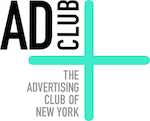Mental Health in the Ad Industry & Return to Office
From Carlene Esposito, Managing Partner, TBWA\Health Collective
As some parts of the industry are returning to office, how are you approaching the return? And how much of that decision is based on mental wellbeing of your teams?
I am pretty excited about returning and have been in the office about once a week. I derive so much energy from my colleagues! As the weeks and months go on and more of us are meeting in person we are seeing the positive impact that is having for the culture of our agency.
We’ve had mixed opinions on returning and I’m grateful we have the flexibility to allow people to come back at their own pace. The pandemic changed so much, and many people found better ways to exist in unpredictable new reality. Our most important priority is everyone feeling safe, physically, and physiologically. This leads to happy teams, great work and a growth mindset all around.
As the pandemic blurred the lines between work and personal life, how would you recommend ensuring balance?
I have been traveling and working somewhat remotely for several years, so I was a bit ahead of the game when the pandemic hit, already comfortable navigating a virtual world. However, as hours in my home office increased, I found myself skipping lunch, walks and breaks. I took stock of what my days looked like, and that of my teams’. We worked together to establish rules of engagement that forced us all to practice daily balance. While checking email at 10pm might be good for one person, receiving that note can be the source of tremendous stress for others. By establishing ways of showing up (or not) we all found a better, more cohesive, and balanced work style. And we keep this promise to ourselves and each other.
What are some ways in which you prioritize your mental health as an ad executive?
I take time away from work seriously, it’s my obligation to myself. It took a while for me to get here but it continues to prove itself out- when I take care of myself, the world around me runs more smoothly. I schedule exercise and family time into my calendar and honor these commitments like I do work commitments.
I spent time years ago learning how to compartmentalize and it pays off daily. With the world currently in what can feel like a constant state of trauma, being able to recall this skill has helped me put aside challenges, step away and come back clearer and more creative than before. With so many meetings and obligations it also allows me to approach each topic or meeting totally focused. I revisit when I have more space, and usually much better ideas.
May is Mental Health Awareness month and as advertising and media professionals, we have the power to shape how mental health/illness is portrayed. How do you recommend we depict a better portrayal, challenge stigma and change the conversation?
Humor, awareness and empathy. I am a big believer in leading with humor and can find it in almost anything. You can infuse instant joy into a difficult situation or conversation with a bit of humor.
We also really look out for each other. If someone seems off, we make a call, send a note or simply tell them to take time to themselves. We encourage open dialogue and vulnerability so we can not only help each other, but create an environment of true trust and collaboration.
While the world is beginning to finally destigmatizing mental health and making it OK to not be OK, working with colleagues who share these values is irreplaceable. All of this leads to a culture at the Health Collective that I am so proud of; talented people who like each other, have fun and make great work.
